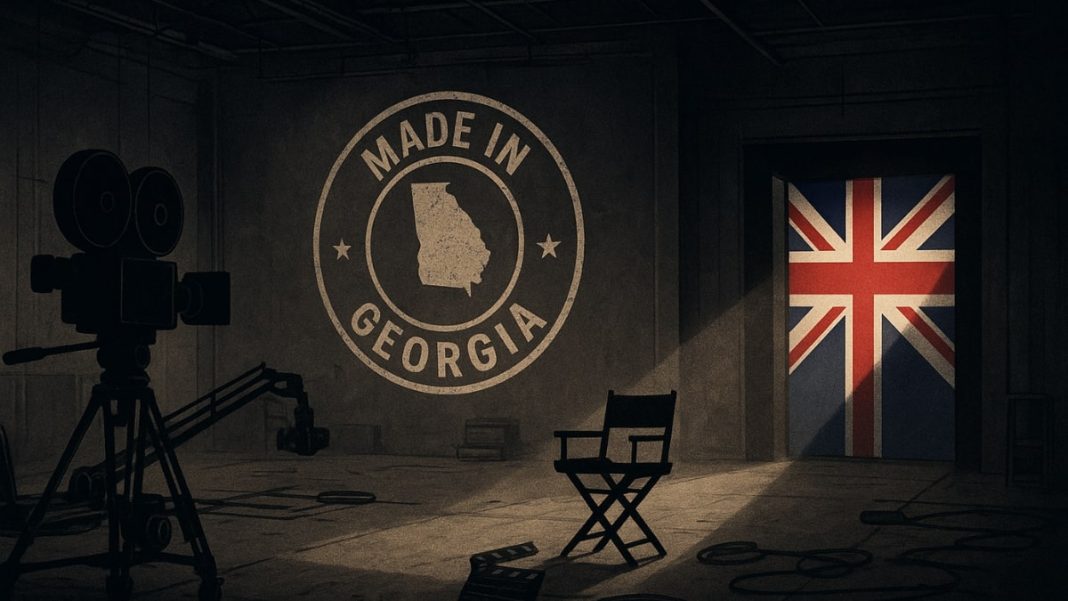For more than a decade, Georgia was known as the “Hollywood of the South.” Big movie studios rushed to the state because of its generous tax breaks for film and television. The state government allowed production companies to claim up to 30% of their spending as a credit, and unlike many other states, there was no cap on the program.
A booming industry now in decline
This attracted some of the world’s largest studios. Huge franchises like The Hunger Games, Fast & Furious, Stranger Things, and The Walking Dead were filmed in Georgia. But the most important player of all was Marvel Studios, which made nearly two dozen blockbuster movies and shows in the Atlanta area.
For years, local film workers had steady jobs. Camera crews, makeup artists, lighting experts, set builders, and script supervisors all earned good money. Many families moved to Georgia for this work, and entire neighborhoods benefited from the boom. The industry created nearly 20,000 jobs in the state. Studios worked out of massive facilities such as Trilith Studios, which at one point was so full that productions fought over stage space.
But today, the picture looks very different. Production spending in Georgia has dropped by almost 50% in the past three years. Big-budget movies and TV shows are leaving, and the once-busy sound stages now sit mostly empty.
Why Marvel chose to leave Georgia
The change is not because Georgia ended its tax program. The credits still exist. Instead, the problem comes down to costs.
Labor in Georgia has become more expensive compared to other countries. In the United Kingdom, workers are generally paid less, and studios also save money by not having to cover health insurance. The U.K. offers similar tax breaks, making it even more attractive to major studios.
Marvel has now moved most of its new projects overseas. Its upcoming movies, including the next Avengers films and a new Spider-Man, are being made near London. Disney, Marvel’s parent company, even has a long-term lease on studio space there. This move follows other big productions like Barbie and Wicked, which were also shot in the U.K.
Cyber Attacks on Connected Cars
The trend is not just about Marvel. Across the U.S., the number of films and shows with budgets over $40 million has fallen by almost a third since 2022. At the same time, production in the U.K. has grown. Canada and Australia are also common choices for American studios, which often fly in top stars and directors but hire local crews to save costs.
Other U.S. states such as California, New York, and Texas are trying to fight back by expanding their own tax programs. This has created a global competition, with studios constantly moving to wherever they can get the best deal.
Impact on Georgia’s workers and studios
The exit of Marvel has hit Georgia’s workers the hardest. Many crew members once enjoyed steady employment, often moving from one superhero production directly to the next. Some even nicknamed their homes “the house Marvel bought,” because their paychecks allowed them to buy property and live comfortably.
Now, thousands of workers face unemployment or reduced hours. Some are trying to retrain in new roles just to stay in the entertainment industry. Others have had to take on side jobs or dip into their savings to make ends meet.
Cyberattack Catastrophe: How Hackers Can Endanger Human Lives ?
The mood across the industry in Georgia has turned bleak. On sets, workers have joked bitterly about being “unemployed in Georgia,” rewriting the cheerful “Made in Georgia” jingle that used to appear at the end of shows filmed there.
Trilith Studios, once the heart of Marvel’s Georgia productions, is now largely empty. The studio built an entire village with apartments and restaurants designed to serve visiting workers, but today those spaces are quiet. Some companies are trying to create new forms of content at Trilith to keep the facility alive, but the scale is far smaller than before.
Georgia’s film boom once made it seem like Atlanta might rival Los Angeles as the center of global entertainment. But Marvel’s decision to leave, combined with shrinking production budgets worldwide, has shown how quickly that success can disappear.
